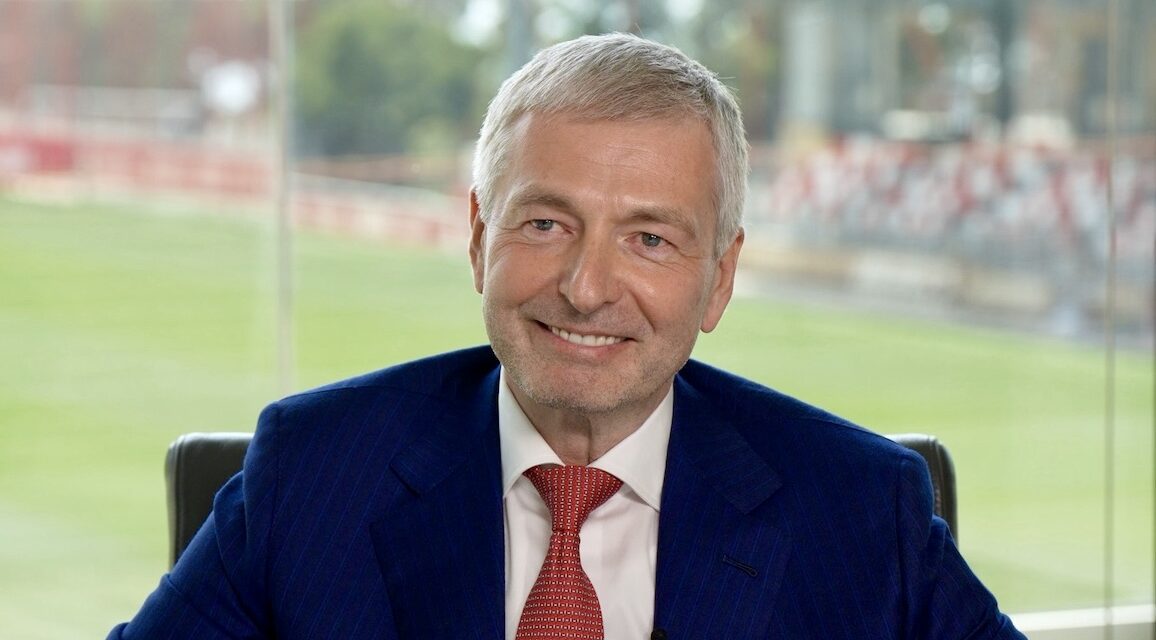The long-running corruption and influence-peddling case against AS Monaco owner Dmitri Rybolovlev has come to an abrupt end, as the Principality’s Council Chamber ruled to annul the entire legal process. The decision, based on a landmark European Court of Human Rights (ECHR) ruling, sees all charges against Rybolovlev and his lawyer Tetiana Bersheda dismissed, marking a dramatic conclusion to a scandal that once threatened Monaco’s highest institutions.
The case, which implicated top political and judicial figures in Monaco, stemmed from allegations that Rybolovlev had used his influence to sway legal proceedings in his favour. However, the foundation of the case—the contents of Bersheda’s mobile phone—was deemed to have been obtained illegally, leading to the collapse of the entire investigation. “There are now no further criminal proceedings open against Dmitri Rybolovlev and Tetiana Bersheda. They have been completely and definitively cleared,” their legal team announced in a statement.
The affair had its origins in a bitter dispute between Rybolovlev and Swiss art dealer Yves Bouvier, who had helped the Russian billionaire amass a world-class private collection, including works by Leonardo da Vinci, Van Gogh, and Picasso. When Rybolovlev discovered that Bouvier had allegedly profited excessively from the transactions, he launched legal action in Monaco in 2015. Although the two men reached a settlement in November 2023, the fallout from their dispute had already spiralled into a major legal battle.
In February 2017, as part of a separate privacy case, Bersheda voluntarily handed over her phone to authorities. It proved to be a costly decision. Investigators extracted tens of thousands of text messages, emails, and call logs, which revealed alleged preferential treatment Rybolovlev had received from Monaco’s top police and judicial officials. These records formed the backbone of a high-profile investigation that saw nine people—including former Minister of Justice Philippe Narmino, former Attorney General Jean-Pierre Dreno, and senior police officers—formally charged in November 2018.
From the outset, Rybolovlev’s defence team argued that the judge had overstepped his authority by using confidential lawyer-client communications. After years of legal battles, their challenge was upheld by the ECHR, which ruled on 6 June 2024 that the evidence had been obtained in violation of Article 8 of the European Convention on Human Rights, which guarantees the right to privacy.
With the legitimacy of the investigation in question, Monaco’s judiciary faced a critical decision: whether to uphold the case or dismantle it entirely. In recent months, courts in both France and Switzerland had already cited the ECHR ruling to invalidate similar evidence in related cases. In a final move, Monaco’s investigating judge referred the matter to the Council Chamber, which ruled on Thursday to strike down the phone records—and, in turn, every legal action based on them.
The verdict triggered a domino effect, voiding years of legal proceedings. The charges against Rybolovlev, Narmino, Dreno, and the other accused were all erased. What had once been touted as a seismic corruption scandal had, in the end, collapsed entirely.
For Rybolovlev, the ruling represents complete vindication. For Monaco’s justice system, it is a reversal in a case that once cast a shadow over the highest echelons of the Principality’s elite.
Image courtesy of AS Monaco: Dmitri Rybolovlev


